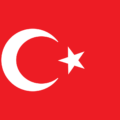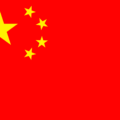EU Report Talks About Strengthening Trade Ties with Turkey

A report was compiled by Josep Borrell, EU foreign affairs chief and the European Commission for the European Union leaders’ meeting. The report suggested that the EU and Turkey must negotiate to deepen trade ties between them. However, it also warned that if Ankara moved against the interest of the Union then the former should be levied with economic sanctions.
This mirrors the complex relationship between the two countries. This creates kind of a paradox where the EU wants to promote trade with Turkey while threatening it with trade restrictions.
Turkey has been in the process of transposing the EU legislation into national law and therefore is a candidate country.
The trading bloc and Turkey had drifted apart but are now heading towards improving their relations.
The report pointed out that establishing the significant trade ties further was a win-win situation for both trading partners. The report further added that the focal point would be EU-Turkey Customs Union’s expansion.
According to the report, since Turkey was supporting Syrian refugees therefore it required more monetary help. It further added that Turkey also deserved visa-free travel to the EU, an extended customs union, and more noteworthy diplomatic contacts.
If Turkey wanted such progress then it was imperative for it to respect human rights. Additionally, it must also show better pliability over the rights of the island of Cyprus and hydrocarbon that was divided in the eastern Mediterranean.
It was also critical to welcome back fifteen hundred refugees and migrants that were living on Greek islands. These were those refugees and migrants whose legal appeals had also worn out.
The report also pointed out the deteriorating condition of the refugees in Turkey which was intensified by the COVID-19 pandemic. This was coupled with the economic downturn that the country was experiencing just like the rest of the world. The report emphasized that given the current situation of Turkey, it would require the EU’s continued support over the next few years.
It is expected that the EU will be offering fresh funds for the refugees in Turkey, 2022 onwards. Over the last four years, the EU has already spent $7.12 billion on these refugees.
The report also indicated that Turkey’s foreign policy was often contradictory to the EU’s. The report gave the example of Turkey’s policy on Libya which often conflicted with the EU’s goals.
Late last year, the leaders of the EU suggested asset suspensions of and travel bans over Turkey. This was in light of the country’s unauthorized drilling activities for natural gas in contested waters of the eastern Mediterranean.
However, these sanctions were halted when Recep Tayyip Erdogan, the Turkish president, gave a better approach to resolving these issues.
The report also talked about the tourism and energy sector of Turkey and said that punitive measures could be imposed on these too. The report expressed that Tukey’s non-constructive efforts in improving its partnership with the EU could have economic and political consequences.



















